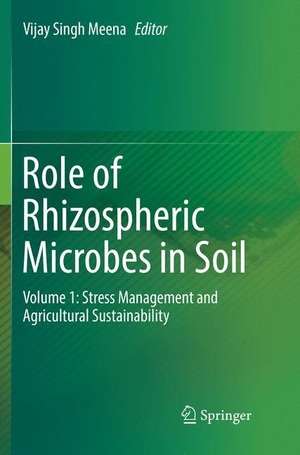Für statistische Zwecke und um bestmögliche Funktionalität zu bieten, speichert diese Website Cookies auf Ihrem Gerät. Das Speichern von Cookies kann in den Browser-Einstellungen deaktiviert werden. Wenn Sie die Website weiter nutzen, stimmen Sie der Verwendung von Cookies zu.
Cookie akzeptieren
Role of Rhizospheric Microbes in Soil
- Springer Nature Singapore
- 2019
- Taschenbuch
- 412 Seiten
- ISBN 9789811341410
In any ecosystem, plant and microbe interaction is inevitable. They not only co-exist but also support each other¿s survival and provide sustenance in stressful environments. Agro-ecosystems in many regions around the globe are affected by high temperatures, soil salinity/alkalinity, low pH and metal toxicity. High salinity and severe draught are other major constraints affecting agricultural practices and also plants in the wild. A major limiting factor affecting global agricultural productivity is environmental stresses. Apart from decreasing yield, they also have a devastating impact on plant growth. Plants battle with various kind of stresses with the help of symbiotic associations with the rhizospheric microbes. Naturally occuring plant-microbe
Mehr
Weniger
zzgl. Versand
in Kürze